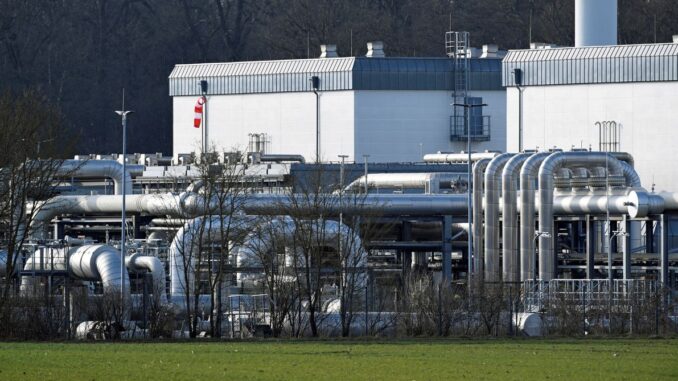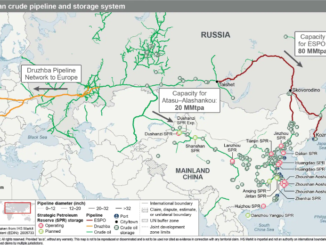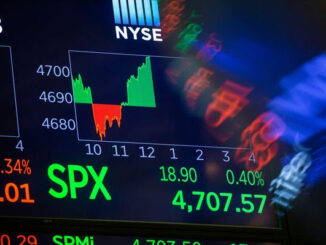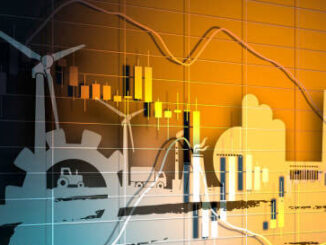
March 30 (Reuters) – Germany triggered an emergency plan to manage gas supplies on Wednesday that could see Europe’s largest economy ration power if a standoff over a Russian demand to pay for fuel with roubles disrupts or halts supplies. read more
Here are other countries’ plans and measures:
EUROPEAN UNION
The European Union has rules covering measures to prevent and respond to disruption to gas supplies.
The regulation identifies three levels of crisis: an early warning, an alert, and an emergency. EU countries are required to have plans in place for how they would mange the impact of a supply disruption at the three crisis levels.
In an emergency, governments can intervene only if market-based measures are insufficient to ensure supplies to households and to customers providing essential services.
Each country’s plan should define responsibilities for entities including industrial gas consumers at each crisis level, list actions to make gas available in an emergency, and a plan for how countries will cooperate.
The EU regulation requires member states to support another EU country their gas infrastructure connects to if that country requests assistance because it cannot supply enough gas to its households and essential social services.
The European Commission would coordinate action and share information between countries.
AUSTRIA
Austria, which gets around 80% of its gas from Russia, said it had activated the first step of a three-stage emergency gas-supply plan, tightening its monitoring of the gas market but taking no extra measures for now to secure its supply, because of Russia’s demand for payment in roubles.
Measures such as gas rationing would only come into play if the third phase of that emergency plan were activated, which required an “immediate crisis”, Chancellor Karl Nehammer’s office said in a statement.
FRANCE
Finance Minister Bruno Le Maire told Europe 1 radio on Wednesday that France was preparing itself for “all possible scenarios” regarding Russian gas supplies.
France should not encounter any energy supply issues and so there is no need for panic, the head of the country’s CRE regulatory body said, adding requests for citizens to be careful about consumption were quite normal. read more
France gets around 20% of its gas from Russia.
GREECE
Russian gas is delivered to Greece via a pipeline that bypasses Ukraine and covers about 40% of the country’s annual needs.
Greece will hold an emergency meeting of its energy regulator, gas transmission operator and its biggest gas and power suppliers on Wednesday, with the aim of assessing all available scenarios about Greece’s gas supply security in case Russia stops gas flows to the country. read more
THE NETHERLANDS
The Netherlands gets around 15%-20% of its gas from Russia.
The Dutch government said it will ask citizens and businesses to use less gas but is not yet activating its gas crisis plan, after Germany declared an “early warning” of a possible supply emergency. read more
DENMARK
The Danish energy ministry said Denmark had the same emergency plan in place as Germany because it is an EU system but that every country makes an individual assessment. Denmark has not activated “the early warning phase”.
ITALY
Italy gets around 40% of its gas supply from Russia.
Italy’s existing gas emergency protocol envisages three stages going from a state of pre-alert, imposed at the end of February after the Russian invasion of Ukraine, before moving to one of alert and then a state of emergency.
While the first two stages imply monitoring with normal market rules applying, triggering a state of emergency allows measures such as the accessing strategic gas reserves and rationing by limiting supplies to some industry users.
Italy will wait to see if Gazprom (GAZP.MM) sends contract amendments to gas operators before it takes any decision on imposing a state of alert over gas supplies, an Italian government source said. read more
BULGARIA
Bulgaria meets over 90% of its gas needs from imports from Russia’s Gazprom. Its centrist government held a meeting on Wednesday to discuss what measures could be taken in the event of a halt in Russian supplies, a government spokesperson said. read more
Bulgaria’s natural gas grid operator Bulgartransgaz also opened a tender for underground drilling as part of its plans to almost double the country’s gas storage capacity and prepare for any supply disruptions.
POLAND
Poland gets around 50% of its annual gas demand from Russia.
Under the law on mandatory reserves, in the case of risk to supply security, Poland’s climate ministry submits a formal notion to the government to introduce limitations on gas use for consumers.
These would affect industry first and shield households. “There’s no necessity and no grounds to initiate this procedure at this point,” spokesman for the climate ministry Aleksander Brzoska said.
SPAIN AND PORTUGAL
In contrast to many countries on the continent, which in total rely on Russia for 40% of its gas, neither country on the Iberian peninsula counts Russia among its main providers.
BRITAIN
Britain, which is no longer a member of the EU, gets around 3% of gas from Russia. A spokesperson for National Grid said: “Supply continues to be available from a diverse number of sources. The gas supply margin is expected to be sufficient in all of our supply and demand scenarios.”
National Grid has a range of tools available to manage any operational requirements, the spokesperson added.



